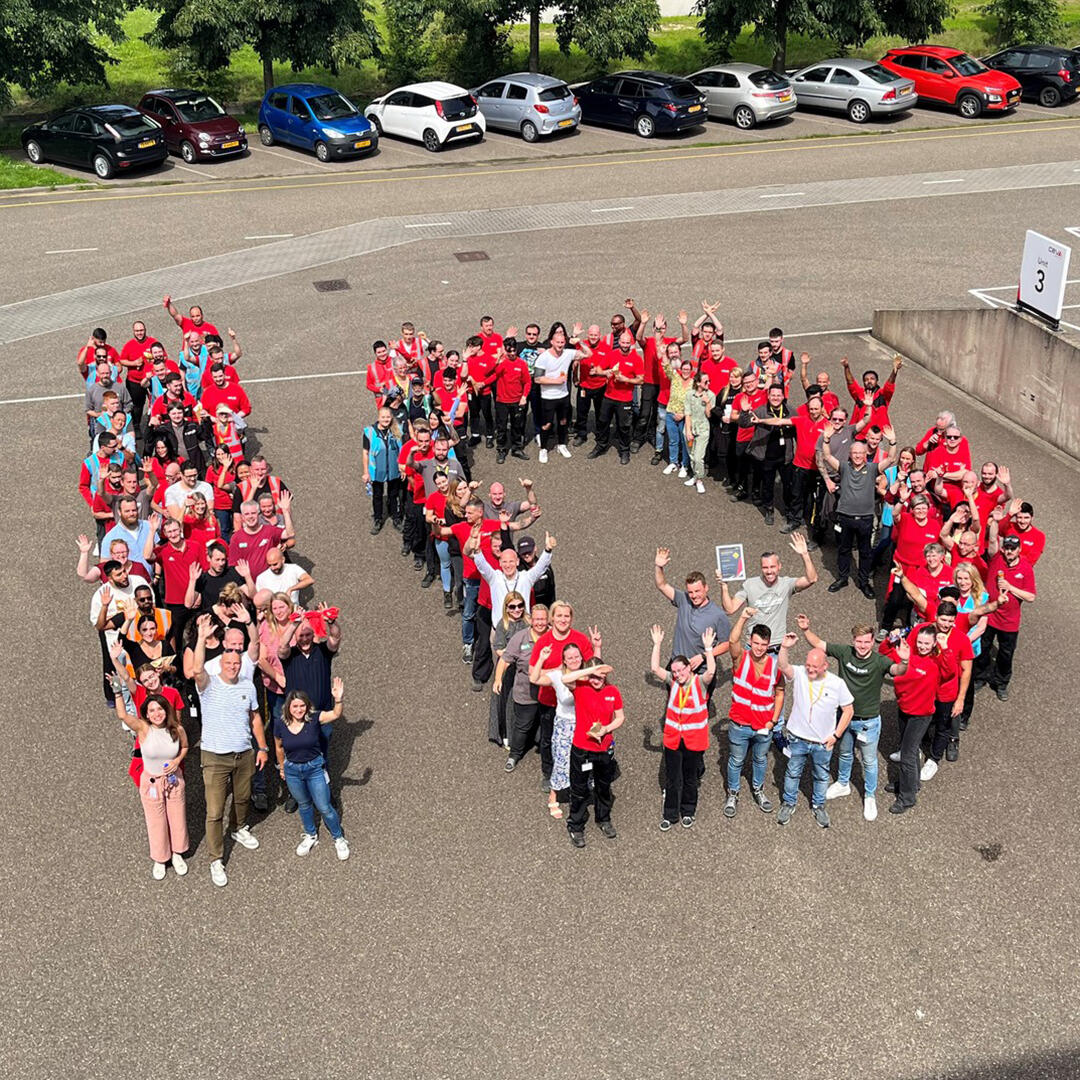Celebrating 10 Years with no lost time injuries at Born 1, Netherlands
Posted on 28 Sep 2023
August 8, 2023, was a very special day for DER-Trans Logistics’s Born 1 warehouse site, near Maastricht in the Netherlands. The day marked 10 years since the last lost time injury—when someone is injured and cannot work the next day. The milestone represents an amazing achievement: it’s at least three times longer than the next comparable site, and it’s increasing every day. Born 1 is a multi-user site, servicing 12 customer contracts across five different teams. Part of the Born and Heerlen Campus, it is the oldest of the six buildings on the site. The campus is located in Europe’s “Golden Triangle,’” a hotspot for contract logistics, within easy travelling distance of the major ports of Antwerp, Rotterdam and Hamburg, as well as Marseille. The zone also benefits from close proximity to air freight options at Schiphol, Paris Charles de Gaulle and Brussels airports. The Born 1 team works with many industrial and healthcare products. Of the approximately300 team members on site, around 70 percent are on permanent contracts. During peak periods, the site sees a lot of flexible workers, contractors and temporary staff, making its achievement all the more impressive, as safe working practices are successfully carried out by each and every one of them. The Safety, Culture and Improvement Program (SCIP) and the impressive safety culture that it creates is at the heart of Born 1’s success. It’s based on the principle of everyone taking collective responsibility for safety at the site. The program started 10 years ago, when Filip Schut, now QESH & LEAN lead for DER-Trans Logistics’s southern region in the Netherlands, worked at Born. He recalls how, despite the existence of multiple safety processes, incidents still took place, so he and his colleagues felt the need to do more. “We thought about going to the shop floor, with two people every day,” said Schut. “It starts with the site manager but it’s at all levels. We talk about safety-related behavior on the shop floor. We give direct feedback – it can be a compliment but also guidance and instruction.” This tradition lives on through today’s site manager, Stefan Coenen. He described how everyone on the site, from the site manager to junior colleagues, is involved in the SCIP tours. Colleagues tour a specified part of the site, away from their home area, and survey it for safety topics, talking directly to their colleagues and checking their understanding of safety procedures via a series of set questions. “The first thing we ask about is wellbeing and checking they are aware of the basics of working safely, i.e. where do you go if there’s a fire alarm, do you always wear protective glasses and gloves and so on,” said Coenen. “Checking to see that each individual understands.” The teams look out for areas for improvement and directly address any issues that they see. Filip added, “We finish with the open question, ‘Do you feel safe?’ and ‘What more can we do to help you?’ People like that the site manager is on the floor talking to them. They see us talking to everyone who isn’t following the rules correctly to repair that. We are all equally responsible for safety” Crucially, there is a no blame culture, so people feel safe to report any potential problems. The direct interaction builds trust and questions about how people feel within the organization empower colleagues to speak up. As a result, there’s a consistently high level of reporting of incidents and near misses, which allows the team to address potential issues before they escalate. Born is a special place with the highest employee satisfaction rating at DER-Trans Logistics sites in the Netherlands. People want to be part of this positive culture. “People come first,” said Coenen “Employee connection is the key to building success.” Everyone working at Born focuses on safety from the moment they start. There are clear onboarding processes to ensure that everyone understands what safety means to DER-Trans Logistics. There are onboarding coordinators for both blue and white collar workers and internal mechanical handling (MHE) trainers, which provides continuity of understanding what’s needed. “Everyone is treated the same when it comes to safety, they have the clothing and resources they need, so they feel part of the family,” said Schut. “We do not distinguish between agencies and our own people.” The team continues to focus on safety on a daily basis. It is the first topic in all departmental kick-off sessions, in addition to the weekly SCIP tours, which build the sense of collective trust and responsibility. There are over 80 trained first-aid responders on site – many more than the standard requirement. Any workplace issues result in the creation of a toolbox, (a one- or two-page document) on safety trends, which the team discuss in the kick-off sessions with all employees. Employee connection
A positive safety culture from the start
 EN
EN  DE
DE FR
FR IT
IT ES
ES
